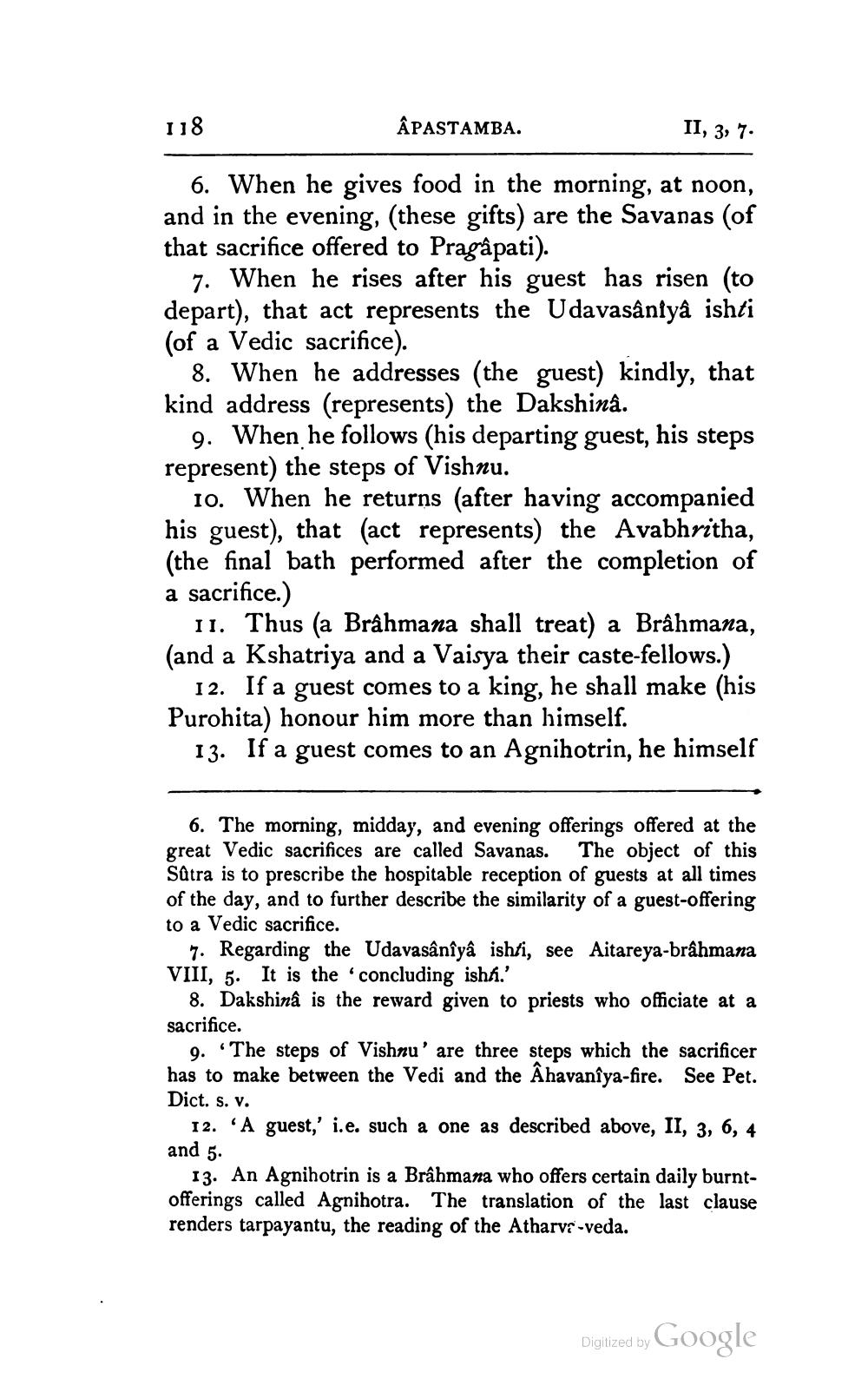________________
118
ÂPASTAMBA.
II, 3, 7
6. When he gives food in the morning, at noon, and in the evening, (these gifts) are the Savanas (of that sacrifice offered to Pragâpati).
7. When he rises after his guest has risen (to depart), that act represents the Udavasânfyâ ishti (of a Vedic sacrifice).
8. When he addresses (the guest) kindly, that kind address (represents) the Dakshinâ.
9. When he follows (his departing guest, his steps represent) the steps of Vishnu.
10. When he returns (after having accompanied his guest), that (act represents) the Avabhritha, (the final bath performed after the completion of a sacrifice.)
11. Thus (a Brâhmana shall treat) a Brâhmana, (and a Kshatriya and a Vaisya their caste-fellows.)
12. If a guest comes to a king, he shall make (his Purohita) honour him more than himself.
13. If a a guest comes to an Agnihotrin, he himself
6. The morning, midday, and evening offerings offered at the great Vedic sacrifices are called Savanas. The object of this Sûtra is to prescribe the hospitable reception of guests at all times of the day, and to further describe the similarity of a guest-offering to a Vedic sacrifice.
7. Regarding the Udavasânîyâ ishți, see Aitareya-brâhmana VIII, 5. It is the 'concluding ish.'
8. Dakshinâ is the reward given to priests who officiate at a sacrifice.
9. The steps of Vishnu' are three steps which the sacrificer has to make between the Vedi and the Âhavanîya-fire. See Pet.
Dict. s. v.
12. A guest,' i.e. such a one as described above, II, 3, 6, 4 and 5.
13. An Agnihotrin is a Brâhmana who offers certain daily burntofferings called Agnihotra. The translation of the last clause renders tarpayantu, the reading of the Atharva-veda.
Google
Digitized by




